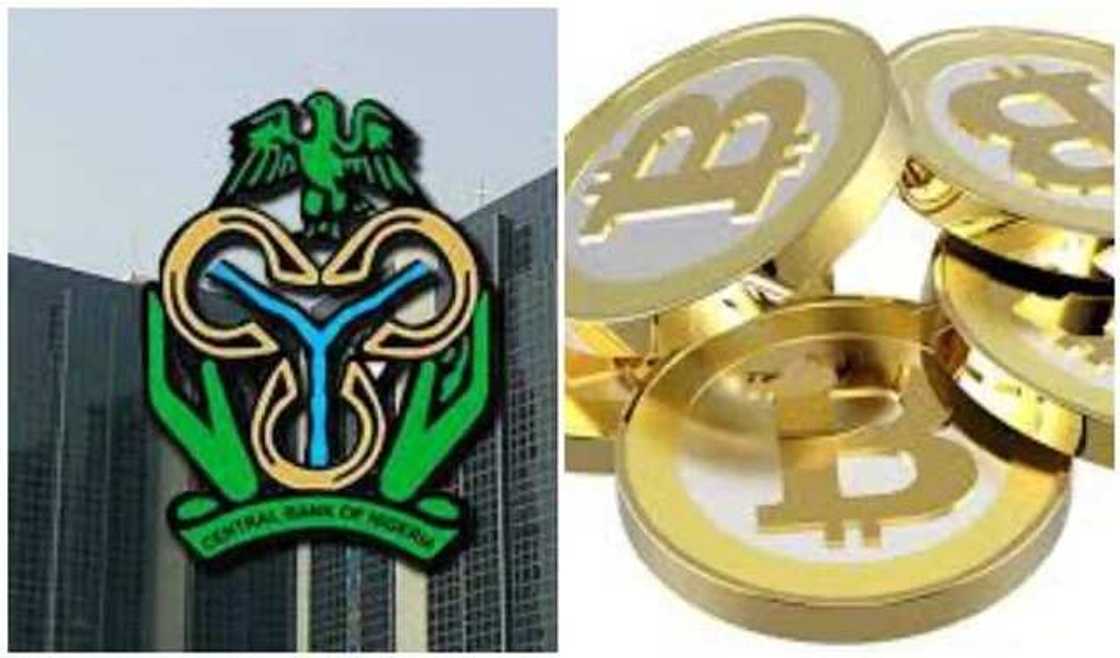Central Bank of Nigeria bans transaction in bitcoins, onecoin, others
- Central Bank of Nigeria has banned Nigerian banks from all transactions in virtual currencies like Bitcoin, Onecoin and ripples
- Central bank warned that these virtual currencies are untraceable and can be used by criminals
The Central Bank of Nigeria (CBN) on Tuesday, January 17, has passed a circular to inform all Nigerian banks that all transaction in bitcoin and other virtual currencies have been banned in Nigeria.

The CBN directive is coming after the Securities and Exchange Commission (SEC) issued a warning against virtual currencies.
READ ALSO: How to make money online
According to a report by Premium Times, the circular signed by CBN’s director of financial policy and regulation department, Kelvin Amugo, stated that the move was necessitated by money laundering and terrorism financing risks inherent in operations of virtual currencies.
The circular read: “The emergence of Virtual Currencies (VCs) has attracted investments in payments infrastructure that provides new methods of transmitting value over the internet.
“Transactions in VCs are largely untraceable and anonymous making them susceptible to abuse by criminals, especially in money laundering and financing of terrorism.
“VCs are traded in exchange platforms that are unregulated, all over the world. Consumers may, therefore, lose their money without any legal redress in the event these exchanges collapse or close business.
“The development of VCs Payment Products and Services (VCPPS) and their interactions with other New Payment Products and Services (NPPS), give rise to the need for guidance to protect the integrity of the Nigerian financial system. There is, therefore, the need to address the Money Laundering/Terrorism Financing risks associated with VC exchanges and any other type of institutions that act as nodes where convertible VC activities intersect with the regulated fiat currency financial system.
“The attention of banks and other reporting financial institutions is hereby drawn to the above risks and you are required to take the following actions pending substantive regulation or decision by the CBN.”
The Central Bank therefore advised banks to ensure that they do not use, hold, and transact in virtual currencies.
CBN also warned the banks to ensure that existing customers that are virtual currency exchangers have effective AML/CFT controls that enable them to comply with customer identification, verification and transaction monitoring requirements.
“Where banks or other financial institutions are not satisfied with the controls put in place by the virtual currency exchangers/customers, the relationship should be discontinued immediately; and any suspicious transactions by these customers should immediately be reported to the Nigerian Financial Intelligence Unit (NFIU).”
The CBN stressed that virtual currencies such as Bitcoin, Ripples, Monero, Litecoin, Dogecion, Onecoin and similar products are not legal tenders in Nigeria, thus any bank or institution that transacts in such business does so at its own risk.
Meanwhile, a Nigerian man, Daniel Onowugbeda has called on the Economic and Financial Crime Commission (EFCC) to help him arrest an alleged fake bitcoin seller who duped him.
According to him, he contacted the bitcoin seller on Twitter, a user identified as, @BuyBitcoinsNg. He was asked to pay N100,000 but the seller blocked him immediately after he paid the money into the account given to him.
Source: Legit.ng


